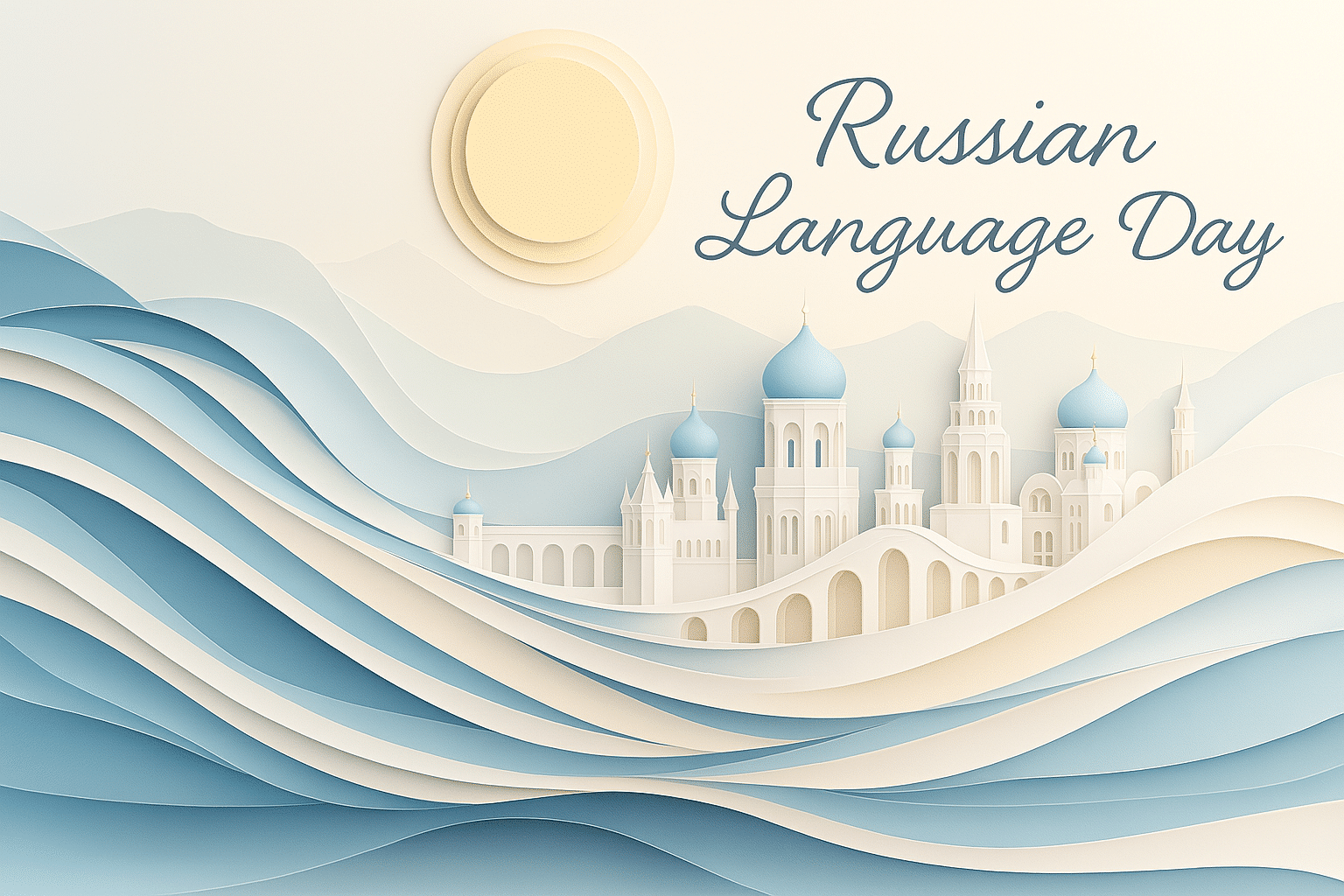What is Russian Language Day?
Russian Language Day is celebrated annually on June 6 in honor of the birth of Alexander Pushkin, a renowned Russian poet and the founder of modern Russian literature. This day, established by the United Nations in 2010, promotes the significance of the Russian language and its role in cultural diversity, multilingualism, and global communication. Russian Language Day encourages people around the world to celebrate the Russian language’s rich history and its importance in international dialogue. The day also highlights Russia’s cultural contributions, focusing on literature, art, and language, with a special emphasis on the linguistic legacy of Pushkin.
As one of the six official languages of the United Nations, Russian holds a vital place in international relations, science, and literature. This observance helps raise awareness about the beauty and complexity of the Russian language, fostering understanding and appreciation across cultures.
History and Origin
Russian Language Day was introduced by the United Nations in 2010 to celebrate the linguistic diversity of the world and encourage respect for all languages. The date was chosen to coincide with the birthday of Alexander Pushkin, whose work in literature and poetry is considered foundational to the Russian language. Pushkin’s influence helped shape modern Russian, and his works remain central to the study and understanding of the language today. The day aims to promote the Russian language’s continued development and its use in cultural and diplomatic exchanges.
Since its inception, Russian Language Day has served as a reminder of the role that language plays in shaping identity, culture, and communication. It provides an opportunity for speakers and learners of Russian to celebrate their language while sharing it with others.
Who participates in Russian Language Day?
- Educational Institutions: Schools, colleges, and universities organize events such as poetry readings, language workshops, and lectures to engage students and the public in Russian linguistic and cultural studies.
- Cultural Organizations: Museums, theaters, and cultural centers often hold exhibitions, performances, and discussions focused on Russian art, literature, and the history of the language.
- Media and Publishers: They play a role by publishing articles, books, and hosting broadcasts that celebrate the Russian language, its literature, and the cultural contributions of Russian-speaking communities.
- Government Institutions: Various governmental bodies may hold events, raise awareness, and support initiatives to preserve and promote the Russian language in different regions and communities.
- The General Public: People from all over the world, including Russian speakers and language enthusiasts, participate by attending events, learning about Russian culture, and using the language in their daily lives.
Slogans and Themes
Russian Language Day is associated with slogans and themes that celebrate linguistic and cultural richness. Common slogans include “Preserving the Richness of Russian Words,” “Russian Language ; A Bridge Between Cultures,” and “Pushkin ; Our Inspiration.” These themes emphasize the connection between language, culture, and the global significance of Russian as a means of communication and artistic expression.
Colors, Symbols, and Patterns
Colors
- Gold: Symbolizes the richness and grandeur of the Russian language and its literary heritage.
- Blue and White: Reflect the colors of the Russian flag, symbolizing national pride and identity.
Symbols
- Alexander Pushkin’s Portrait: Represents the literary and linguistic legacy of the poet, who is considered the father of modern Russian literature.
- Cyrillic Script: The unique writing system used for Russian, symbolizing its deep historical and cultural significance.
- Matryoshka Dolls: Traditional Russian nesting dolls, reflecting Russian culture and craftsmanship.
Patterns
- Traditional Folk Art Designs: Incorporate elements like floral motifs, representing the cultural heritage of Russia.
- Calligraphy: Beautiful writing of Russian letters and words, showcasing the aesthetic value of the language and its visual beauty.
How do you celebrate Russian Language Day?
- Read Pushkin’s Works: Spend time reading or listening to the works of Alexander Pushkin, whose contributions to the Russian language and literature are unparalleled.
- Attend Cultural Events: Participate in exhibitions, theatrical performances, and lectures that celebrate Russian culture and language.
- Learn Russian: Use the day as an opportunity to start learning Russian or improve your skills through classes, online resources, or language exchange.
- Share and Promote Russian Language: Join online communities, share posts in Russian, or engage in conversations to promote the language and connect with others who speak it.
- Celebrate Russian Cuisine: Host or attend a gathering with traditional Russian food to learn more about the culture while enjoying delicious dishes.
Why Is Russian Language Day Important?
Russian Language Day is an important celebration because it emphasizes the value of linguistic diversity and the cultural richness of the Russian language. As one of the official languages of the United Nations, Russian plays a crucial role in global diplomacy, literature, science, and culture. The day encourages respect for Russian and other languages, highlighting how language connects people and shapes the world’s cultural landscape. By celebrating Russian Language Day, we not only honor the legacy of Pushkin but also promote the global sharing of knowledge and ideas through language.
Russian Language Day fosters international cooperation and cross-cultural understanding, reminding us of the power of language in bringing communities together and enhancing communication across borders.
Features
Contact Info
June 6: Russian Language Day
Why do you keep falling for the same type?
Read the article Lovemaps: the hidden blueprint of our love.

